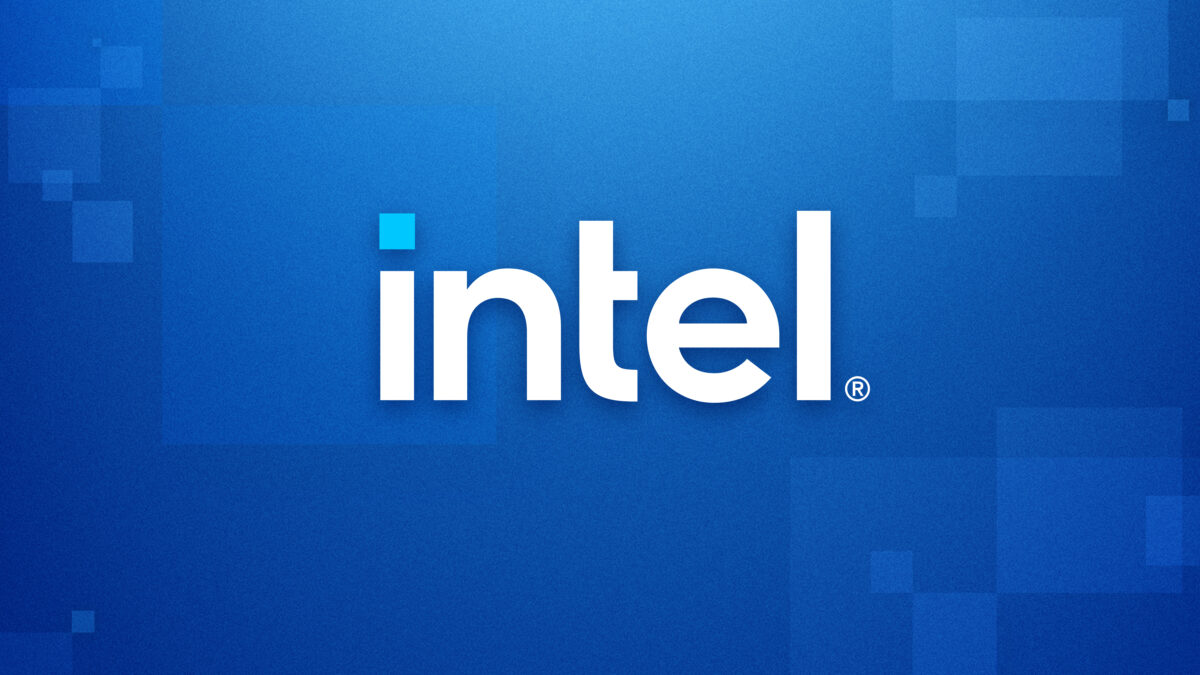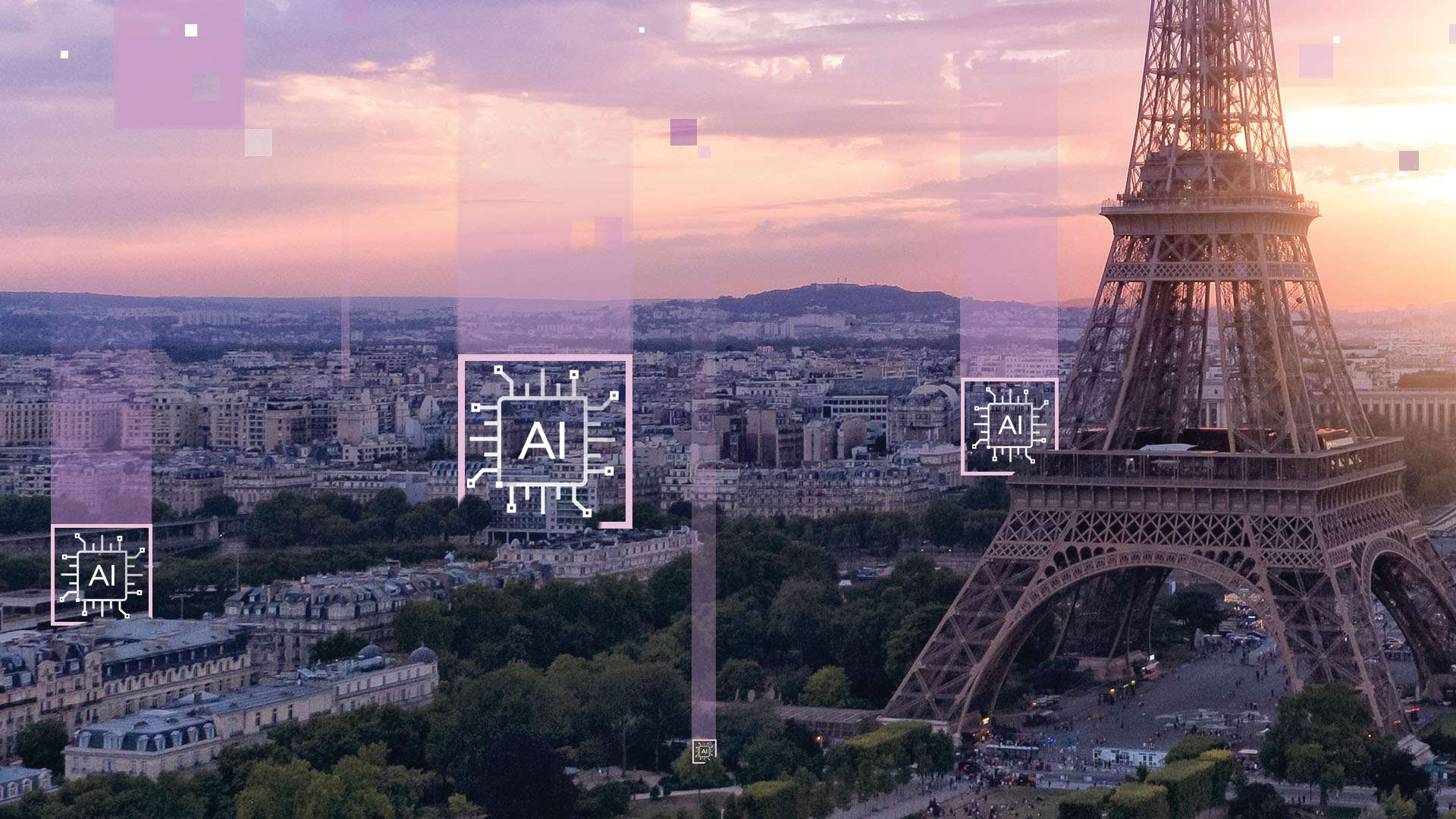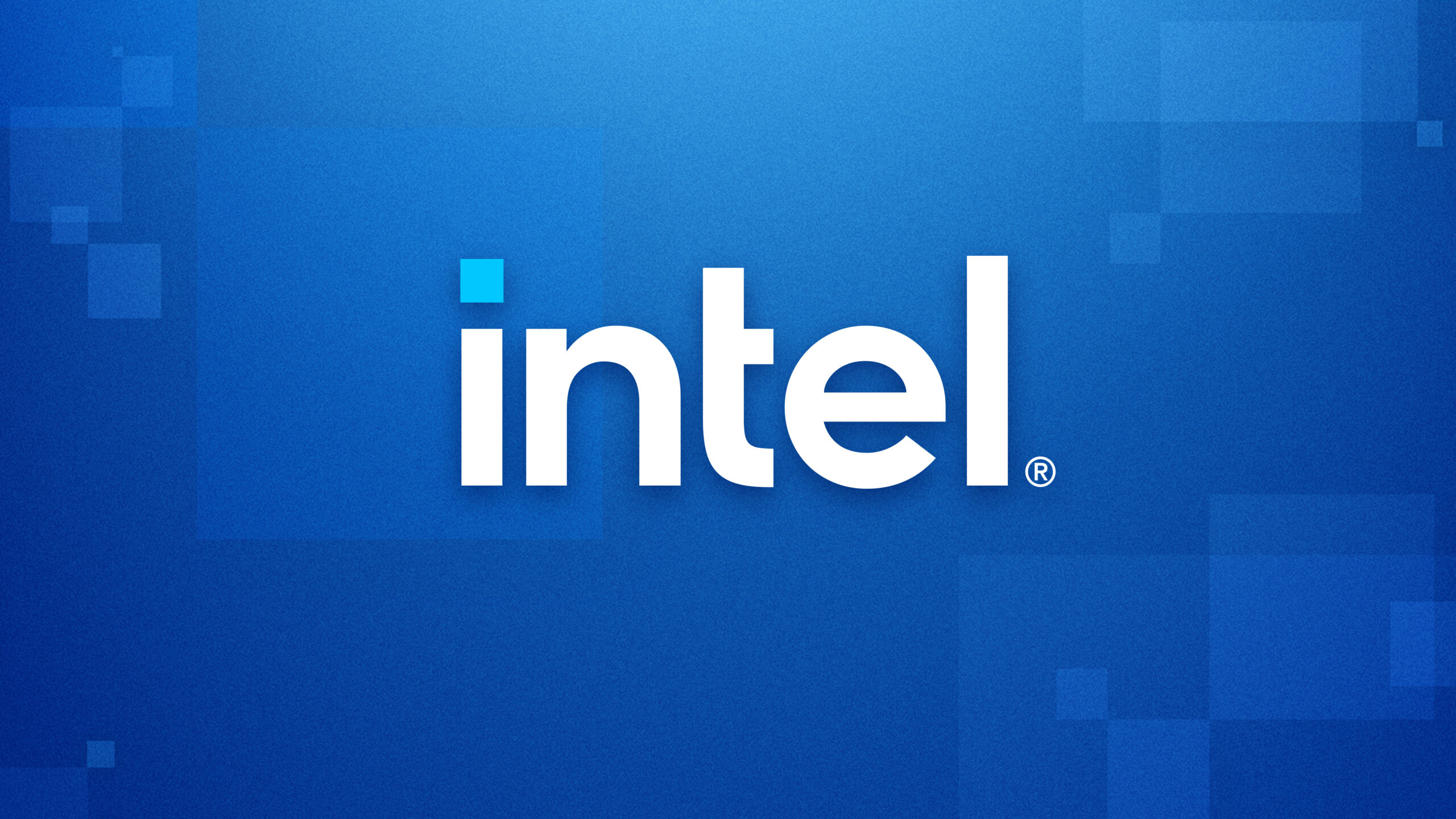Intel Newsroom Archive 2024
December 31, 2024
Published

List of Intel Newsroom articles and news from 2024
In this article:
- January 3, 2024: Intel and DigitalBridge Launch Articul8, an Enterprise Generative AI Company
- January 3, 2024: Intel to Report Fourth-Quarter and Full-Year 2023 Financial Results
- January 3, 2024: Justin Hotard to Lead Data Center and AI Group
- January 8, 2024: CES 2024 Intel Delivers New High-Level Compute Solutions in Mobile, Desktop and Edge
- January 9, 2024: Intel Drives AI Everywhere’ into Automotive Market at CES
- January 18, 2024: Media Alert Intel Launches Flagship Foundry Event
- January 24, 2024: Intel Opens Fab 9 in New Mexico
- January 25, 2024: Intel and UMC Announce New Foundry Collaboration
- January 25, 2024: Intel Reports Fourth-Quarter and Full-Year 2023 Financial Results
- January 29, 2024: Intel-Supported App Helps Doctors Detect Throat Cancer in Seconds
- February 7, 2024: What is an AI PC
- February 9, 2024: Media Alert Intel FPGA Vision Webcast
- February 12, 2024: Intel Teams with Partners to Enable and Grow End-to-End Private Networks Market
- February 12, 2024: Media Alert Intel at MWC Barcelona 2024
- February 14, 2024: Intel to Provide Updates on Foundry Business and Process Roadmap at IFS Direct Connect
- February 14, 2024: Intel’s Platform-Led Approach to Edge Solutions
- February 20, 2024: Intel and Ohio Supercomputer Center Double AI Processing Power with New HPC Cluster
- February 20, 2024: Intel, Cadence Expand Partnership on SoC Design
- February 21, 2024: Intel Foundry Direct Connect Keynote (Replay)
- February 21, 2024: Intel Foundry Direct Connect
- February 21, 2024: Intel Introduces Advisory Committee at Intel Foundry Direct Connect
- February 21, 2024: Intel Launches World’s First Systems Foundry Designed for the AI Era
- February 22, 2024: Intel Corporation to Participate in Upcoming Investor Conference
- February 23, 2024: Intel Releases 2023 Product Security Report Highlighting Commitment to Security Assurance
- February 25, 2024: Intel Announces New Edge Platform for Scaling AI Applications
- February 25, 2024: Intel Brings AI Everywhere Across Network, Edge, Enterprise
- February 25, 2024: Intel Unleashes 2.7x Performance per Rack Improvement for 5G Core
- February 27, 2024: Intel at MWC Barcelona 2024
- February 27, 2024: Intel Core Ultra Extends AI PCs to the Enterprise with New Intel vPro Platform
- February 29, 2024: Intel Launches Altera, Its New Standalone FPGA Company
- March 6, 2024: Intel Corporation to Host Investor Webinar on New Segment Reporting
- March 8, 2024: Media Alert Intel at Open Confidential Computing Conference 2024
- March 11, 2024: Intel Releases Continuous Profiler to Increase CPU Performance
- March 12, 2024: Intel’s Software-Defined Vehicle Delivers Efficiency and Performance
- March 13, 2024: Intel Appoints Stacy Smith to Board of Directors
- March 14, 2024: Intel Core 14th Gen i9-14900KS Powers Desktop PCs to Record-Breaking Speeds
- March 15, 2024: Media Alert AI for the Enterprise at Vision 2024
- March 18, 2024: Redefining the Foundry for an Era of AI
- March 20, 2024: Intel and Biden Admin Announce up to $8.5 Billion in Direct Funding Under the CHIPS Act
- March 20, 2024: Intel Celebrates CHIPS and Science Act Direct Funding Announcement (Replay)
- March 22, 2024: Intel and Arm Team Up to Power Startups
- March 26, 2024: Intel Announces New Program for AI PC Software Developers and Hardware Vendors
- March 27, 2024: Aligning Sustainability Efforts Across the Semiconductor Value Chain
- March 27, 2024: Intel Gaudi 2 Remains Only Benchmarked Alternative to NV H100 for GenAI Performance
- March 28, 2024: Intel Announces 2024 EPIC Supplier Program Award Recipients
- March 29, 2024: Intel Announces Americas Partner Awards
- April 2, 2024: How Intel is Refining Its Approach to Responsible AI
- April 2, 2024: Intel Outlines Financial Framework for Foundry Business, Sets Path to Margin Expansion
- April 3, 2024: Intel to Report First-Quarter 2024 Financial Results
- April 8, 2024: Intel and Altera Announce Edge and FPGA Offerings for AI at Embedded World
- April 9, 2024: Intel and Ubisoft Announce Collaboration for 2024’s Star Wars Outlaws
- April 9, 2024: Intel Breaks Down Proprietary Walls to Bring Choice to Enterprise GenAI Market
- April 9, 2024: Intel Unleashes Enterprise AI with Gaudi 3, AI Open Systems Strategy and New Customer Wins
- April 9, 2024: Intel Vision 2024 Keynote (Replay)
- April 9, 2024: Intel Vision 2024
- April 16, 2024: Homegrown AI Tools Shorten Design Cycles from Weeks to Hours
- April 16, 2024: Intel Welcomes Open Platform for Enterprise AI
- April 17, 2024: Intel Brings AI-Platform Innovation to Life at the Olympic Games
- April 17, 2024: Intel Builds World’s Largest Neuromorphic System to Enable More Sustainable AI
- April 18, 2024: High NA EUV at Intel
- April 18, 2024: Intel Gaudi, Xeon and AI PC Accelerate Meta Llama 3 GenAI Workloads
- April 18, 2024: With High NA EUV, Intel Foundry Opens New Frontier in Chipmaking
- April 22, 2024: US Department of Defense Selects Intel Foundry for Phase Three of RAMP-C
- April 25, 2024: Intel Reports First-Quarter 2024 Financial Results
- May 1, 2024: Intel Takes Next Step Toward Building Scalable Silicon-Based Quantum Processors
- May 1, 2024: More than 500 AI Models Run Optimized on Intel Core Ultra Processors
- May 7, 2024: CEO Letter 2023-24 Intel CSR Report
- May 13, 2024: Aurora Supercomputer Ranks Fastest for AI
- May 13, 2024: Kevin O'Buckley to Lead Foundry Services at Intel
- May 15, 2024: Intel Unlocks Ultra-Fast PC-to-PC Experiences with Thunderbolt Share
- May 16, 2024: Intel Corporation to Participate in Upcoming Investor Conferences
- May 16, 2024: Intel’s Commitment to Building an Inclusive and Accessible World
- May 20, 2024: Intel’s Lunar Lake Processors Arriving Q3 2024
- May 21, 2024: Intel AI Platforms Accelerate Microsoft Phi-3 GenAI Models
- May 21, 2024: Intel Powers China’s Intelligent Cockpit Market
- May 22, 2024: Media Alert Intel Enables AI Everywhere at Computex 2024
- June 3, 2024: Computex 2024 Keynote Intel Enables AI Everywhere (Replay)
- June 4, 2024: Computex Intel Accelerates AI Everywhere, Redefines Power, Performance and Affordability
- June 11, 2024: Intel’s New SoC Solution Accelerates Electric Vehicle Innovation, Slashing Costs
- June 12, 2024: Intel and Softtek Announce Partnership to Drive Digital Transformation in the Americas
- June 12, 2024: Intel Gaudi Enables a Lower Cost Alternative for AI Compute and GenAI
- June 14, 2024: Intel Presents at Six Five Summit
- June 17, 2024: Seed to Store Nature Fresh Farms and Intel Grow the Future of Sustainable Farming
- June 24, 2024: Building Intel’s Foundry Ecosystem for the AI Era
- June 26, 2024: Intel Demonstrates First Fully Integrated Optical IO Chiplet
- June 26, 2024: Intel Xeon Processors Accelerate GenAI Workloads with Aible
- July 1, 2024: Using AI for Quality Control During Production is a Cost-Saver
- July 10, 2024: Intel to Report Second-Quarter 2024 Financial Results
- July 15, 2024: Intel Launches Its First US Apprenticeship for Manufacturing Facility Technicians
- July 16, 2024: Intel Tiber Portfolio of Business Solutions
- July 18, 2024: From Athletes to GenAI Developers Intel Tackles Real-World Challenges with AI Systems
- July 18, 2024: Intel Welcomes the Coalition for Secure AI
- July 22, 2024: At Olympic Games Paris 2024, Intel AI Platforms Showcase World’s First 8K OTT Broadcast
- July 22, 2024: Intel’s Whole-Vehicle Approach to Boost Automakers Profits
- July 23, 2024: The Linchpin to Better Business Results with AI is a System Strategy
- July 25, 2024: Intel Names Naga Chandrasekaran to Lead Foundry Manufacturing and Supply Chain
- July 29, 2024: Intel-Powered AI Platform Technology Might Spot Next Olympic Hopeful
- July 30, 2024: Media Alert Intel’s Next-Generation Core Ultra Launch Event on Sept. 3
- August 1, 2024: Actions to Accelerate our Progress
- August 1, 2024: Intel Reports Second-Quarter 2024 Financial Results
- August 6, 2024: Intel Foundry Achieves Major Milestones
- August 6, 2024: Kevin O’Buckley Talks Progress on Intel 18A
- August 8, 2024: Global Manufacturing at Intel
- August 8, 2024: Intel Brings Discrete GPU Muscle to the Vehicle Cockpit to Power Next-Gen Automotive AI
- August 13, 2024: Intel Corporation to Participate in Upcoming Investor Conferences
- August 14, 2024: Karma Automotive Goes All-In with Intel for a Software-Defined Future
- August 15, 2024: Intel Recommends Stockholders Reject Mini-Tender Offer’ by Tutanota LLC
- August 21, 2024: Confidential AI at Intel
- August 26, 2024: Intel Demonstrates AI Architectural Expertise at Hot Chips 2024
- August 28, 2024: Intel Launches Most Advanced Workstation Processor Family – Xeon W-3500 and W-2500
- August 28, 2024: Intel Xeon 6 Delivers up to 17x AI Performance Gains over 4 Years of MLPerf Results
- August 29, 2024: Intel and IBM Deliver Enterprise AI in the Cloud
- August 30, 2024: Update on R2 Litigation
- September 3, 2024: Intel Core Ultra Launch Event (Replay)
- September 3, 2024: Intel Unlocks New Laptop Efficiency with Speed
- September 3, 2024: New Core Ultra Processors Deliver Breakthrough Performance, Efficiency for the AI PC Age
- September 4, 2024: Continued Momentum for Intel 18A
- September 16, 2024: Intel and AWS Expand Strategic Collaboration, Helping Advance U.S.-Based Chip Manufacturing
- September 16, 2024: Intel Awarded up to $3B by the Biden-Harris Administration for Secure Enclave
- September 16, 2024: Pat Gelsinger on Foundry Momentum, Progress on Plan
- September 19, 2024: Artificial Intelligence at Intel
- September 23, 2024: Altera Accelerating FPGA-based Innovations from Edge to Cloud with Scalable Portfolio
- September 24, 2024: Intel Unveils Next-Generation AI Solutions with the Launch of Xeon 6 and Gaudi 3
- September 24, 2024: Intel Xeon 6 with P-cores and Gaudi 3 AI Accelerators
- September 25, 2024: Intel Announces APJ and India Partner Awards
- October 7, 2024: Inflection AI and Intel Launch Enterprise AI System
- October 9, 2024: Intel Celebrates AI Innovations by Students with Global Impact Festival
- October 9, 2024: Intel to Report Third-Quarter 2024 Financial Results
- October 10, 2024: Intel Core Ultra Processors (Series 2)
- October 10, 2024: Intel Launches First AI PC Intel Core Ultra Desktop Processors
- October 15, 2024: Intel and AMD Form x86 Ecosystem Advisory Group to Accelerate Innovation for Developers and Customers
- October 16, 2024: How Intel Helps Top PC Makers Deliver World-class AI PCs
- October 17, 2024: Intel Boosts AI Development with Contributions to PyTorch 2.5
- October 18, 2024: KDDI Selects Samsung Virtualized RAN Solution Powered by Intel
- October 31, 2024: Intel Corporation Reports Third-Quarter 2024 Financial Results
- November 14, 2024: Intel Xeon 6 SoC Enables Single-Server Footprint
- November 15, 2024: New Ultrafast Memory Boosts Intel Data Center Chips
- November 18, 2024: Intel’s 2024 Inventor of the Year Refines the Art of Loving Problems’
- November 21, 2024: AI PCs Can Help Users Reclaim Time on Chores
- November 25, 2024: Intel AI Platforms at the Olympic Games Paris 2024
- November 25, 2024: Intel at Olympic and Paralympic Games Paris 2024
- November 26, 2024: Intel Breaks Ground in Arizona
- November 26, 2024: Intel in Oregon
- November 26, 2024: Intel Invests $3.5 Billion in New Mexico Operations
- November 26, 2024: Intel Invests in Ohio
- November 26, 2024: Intel, Biden-Harris Administration Finalize $7.86 Billion Funding Award Under US CHIPS Act
- November 26, 2024: US CHIPS Act Funding for Intel
- December 2, 2024: Intel Announces Retirement of CEO Pat Gelsinger
- December 3, 2024: Intel Corporation to Participate in Upcoming Investor Conferences
- December 3, 2024: Intel Launches Arc B-Series Graphics Cards
- December 5, 2024: Intel Appoints Semiconductor Leaders Eric Meurice and Steve Sanghi to Board of Directors
- December 5, 2024: Intel at CES 2025 Pioneering AI-Driven Innovation in Work and Mobility
- December 7, 2024: Intel Foundry Unveils Technology Advancements at IEDM 2024
- December 16, 2024: 50 Years Ago Celebrating the Influential Intel 8080



